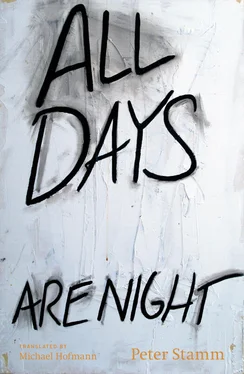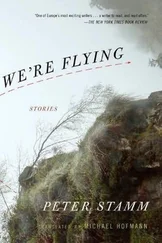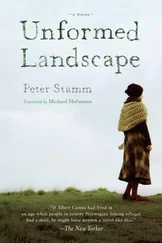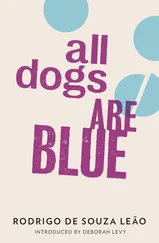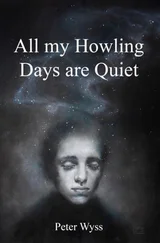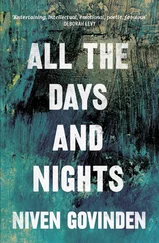Peter Stamm - All Days Are Night
Здесь есть возможность читать онлайн «Peter Stamm - All Days Are Night» весь текст электронной книги совершенно бесплатно (целиком полную версию без сокращений). В некоторых случаях можно слушать аудио, скачать через торрент в формате fb2 и присутствует краткое содержание. Год выпуска: 2014, Издательство: Other Press, Жанр: Современная проза, на английском языке. Описание произведения, (предисловие) а так же отзывы посетителей доступны на портале библиотеки ЛибКат.
- Название:All Days Are Night
- Автор:
- Издательство:Other Press
- Жанр:
- Год:2014
- ISBN:нет данных
- Рейтинг книги:3 / 5. Голосов: 1
-
Избранное:Добавить в избранное
- Отзывы:
-
Ваша оценка:
- 60
- 1
- 2
- 3
- 4
- 5
All Days Are Night: краткое содержание, описание и аннотация
Предлагаем к чтению аннотацию, описание, краткое содержание или предисловие (зависит от того, что написал сам автор книги «All Days Are Night»). Если вы не нашли необходимую информацию о книге — напишите в комментариях, мы постараемся отыскать её.
All Days Are Night — читать онлайн бесплатно полную книгу (весь текст) целиком
Ниже представлен текст книги, разбитый по страницам. Система сохранения места последней прочитанной страницы, позволяет с удобством читать онлайн бесплатно книгу «All Days Are Night», без необходимости каждый раз заново искать на чём Вы остановились. Поставьте закладку, и сможете в любой момент перейти на страницу, на которой закончили чтение.
Интервал:
Закладка:
That evening she put Lukas to bed for the first time. She told him off for skimping on brushing his teeth and watched as he slipped into his pajamas. Then she had to help him look for his teddy bear, and he wanted to hear all about the real bear again.
Have you seen him ever? he asked.
No, said Jill. He’s very shy, he likes to stay out of sight.
Doesn’t he have a family, then? asked the boy.
No, said Jill, I think he’s still a juvenile. He’s just exploring. He’s curious about the world. I think bears like to be by themselves.
I don’t, said Lukas.
I don’t either, said Jill. She kissed the boy on the forehead and called Hubert.
When Lukas was picked up at the end of two weeks by Astrid, Hubert seemed to be less affected than Jill. She had said goodbye to him after breakfast and gone to the office, but she was unable to concentrate on her work. She stood by the window and looked out onto the grounds. We are all one big family here, her boss liked to say. For a week or two at a time they lived that illusion, on “ du ” terms, taking their meals together around big tables, playing sports and guessing games, flirting with each other. But on the day of departure, it all fell apart. At breakfast the guests were in a hurry, the parents were short with their children for not getting a move on, there was a line at reception, because they all wanted to pay their bill, and the lobby was full of islands of luggage on which the children sat like little castaways. Many went off without saying goodbye. At noon, there was a hush over the whole place, meanwhile the maids were working frantically upstairs, removing the traces of the departed. In the afternoon the next load of visitors arrived, and everything started all over again.
Jill went home earlier than usual. Hubert was sitting in the garden, sketching. When she went up to him, he shut the pad with a clack.
There, we’ve got our peace and quiet back again, he said. Would you like a glass of wine? He told her he’d had lunch with Astrid, and she had told him her relationship with Rolf was at a crisis. I don’t know what the problem is, he said, she didn’t want to say anything in front of Lukas, and just dropped hints. I think he wants children, and she doesn’t. He seems to be the conventional one in that relationship. An esoteric and a square.
Is it square to want children? asked Jill.
She’s just too old for him, said Hubert, I told her that all along.
And does Astrid want you back now? asked Jill.
So what if she does? said Hubert after a brief hesitation, as though the possibility had only just occurred to him.
The semester starts in a month, he said over breakfast. Jill looked at him and didn’t say anything. The college only needs me to be there a couple of days a week, he said, three at the most. The rest of the time I could spend here. What do you think?
She nodded. If that’s what you want.
Hubert would drive down on Wednesday evening and come back just after midnight on Friday, on the last train. When Jill picked him up at the station in the car, he was in a good mood, talking about the students, his time with Lukas, visits to galleries and cinemas. After the vacation, there were fewer guests at the hotel, and the painting course was suspended, but that left Hubert time to get on with his own work. When Jill asked him about it, he was evasive. He didn’t like talking about a current project, he said. In the evenings, he withdrew. He had set up a kind of studio in Jill’s old room upstairs. He would disappear into there while Jill read or watched TV. Around midnight she would knock on Hubert’s door. He stuck his head out, gave her a kiss, and said he’d be along in a minute. She undressed and brushed her teeth. She stood in front of the mirror for a long time waiting, but Hubert didn’t come.
In mid-September he said he needed to stay in the city for a while, the term was beginning, and there was lots of organizational stuff to take care of.
How long? asked Jill.
I can’t tell you yet, maybe a week or ten days.
Why didn’t you tell me sooner? she asked. That way I could have gotten used to the idea a bit.
At night she dreamed of Matthias for the first time in ages. They had a child together, a boy who looked like Lukas. In the morning she couldn’t remember any details, she was left with just a picture, a family photograph of her and Matthias in mountain scenery, and the boy between them.
Hubert phoned every other day. He didn’t have much to say for himself, and Jill didn’t know what to say either.
Things are the same, she said, will you be coming on Saturday?
Yes, he said, almost certainly.
You can come whenever you want, she said, but I’d just like to know first.
She felt worse after that call than before. She had taken Saturday off but still got up early. She spent more time than usual in her bath. She wasn’t a particularly gifted or enthusiastic cook, but she wanted to make a welcome feast for Hubert. The village butcher recommended the beef pot roast and explained how to prepare it. Back at home, she put the meat on to cook and laid the table and decorated it with the few remaining flowers she could find in the garden. When everything was ready, the phone rang. It was Hubert. He said he wouldn’t be coming today after all. He hadn’t been able to call her any earlier. Astrid wasn’t doing well, she needed him.
Are you with her now? she asked.
I need to go, he said.
Jill sat in front of the house, but it was cooler than she expected and she went back inside. She started to clean the house. When she took Hubert’s dirty clothes down to the laundry room, she sniffed them, and that settled her a bit. She tried to imagine what it would be like on her own again. In a few years she’d be fifty, and for the first time she had the sense that it was too late for certain things in her life.
She vacuumed the stairs. Outside Hubert’s workroom she hesitated. Since he had moved in there, she had hardly set foot in the place, she didn’t want to bother him, or pressure him. She switched off the vacuum and opened the door. The sudden silence unsettled her, it was like the silence of childhood seeping out of the room and wrapping her up. Jill was about to close the door when she changed her mind and sat down in the threadbare armchair in the corner. The room looked almost the way it had when she was a child. Hubert had left hardly any traces of his occupation, only he had cleared the table, and there were some piles of books, notebooks, and sketch pads on the floor. The ceiling lamp gave a weak yellowish light. She went over to the desk and opened a pad that was lying there. She picked up a pencil, as though she were going to sketch something herself. The pages of the book were covered with pencil cross-hatching. Some were so heavy that they formed shiny reflective surfaces, and you couldn’t see the individual lines anymore, still they had a spatial effect. Other pages seemed to be unfinished, they looked like dream landscapes, like maps, a juxtaposition of small crosshatched spaces going in different directions and forming unpredictable patterns with their occasional intersections. Jill hadn’t a clue what to make of these drawings. Were they artworks or desperate attempts to kill time? As she leafed on, she saw that it was the block with the nude drawings Hubert had done of her the first time he had stayed the night here. Presumably they weren’t anything special, just quick sketches. Not one of them was intact, it looked as though Hubert had crossed them all out before he had embarked on the cross-hatching. Jill was suddenly convinced that he wouldn’t be back.
She started covering one of the sketches with her own hatchings, the one of her kneeling on the bed with her hands behind her back, as though chained. The pencil was too hard, so she took another one. She deleted the picture, as though burying her unprotected body under a layer of graphite, making a fossil that no one would ever discover.
Читать дальшеИнтервал:
Закладка:
Похожие книги на «All Days Are Night»
Представляем Вашему вниманию похожие книги на «All Days Are Night» списком для выбора. Мы отобрали схожую по названию и смыслу литературу в надежде предоставить читателям больше вариантов отыскать новые, интересные, ещё непрочитанные произведения.
Обсуждение, отзывы о книге «All Days Are Night» и просто собственные мнения читателей. Оставьте ваши комментарии, напишите, что Вы думаете о произведении, его смысле или главных героях. Укажите что конкретно понравилось, а что нет, и почему Вы так считаете.
